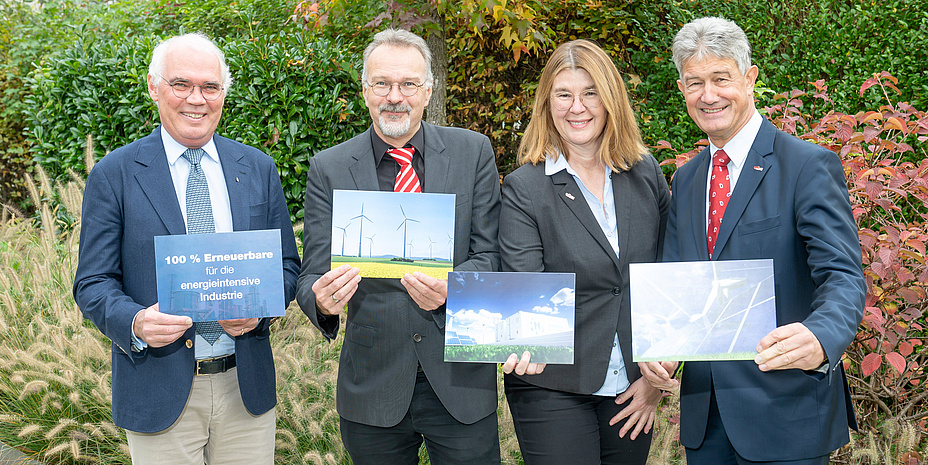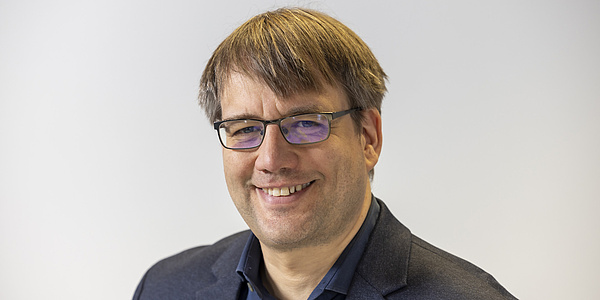100 per cent Renewables for Energy-Intensive Industry (EII)

The steel, chemical, pulp and paper and cement industries – subsumed under the term energy-intensive industry or EII – have a key role to play on the path to climate neutrality by 2050. EII currently accounts for half of the energy consumption of all EU industry and, due to its energy-intensive production processes, is responsible for 14 per cent of total greenhouse gas emissions in the EU. The EU-funded multinational and multi-sectoral research project RE4Industry – 100% Renewable Energies for Energy Intensive Industries – is developing scenarios and solutions on how EIIs can make a smooth and safe transition to 100% renewable energies in production processes and facilities. To this end, representatives of industry met with experts and researchers from various fields at a knowledge transfer seminar at Graz University of Technology (TU Graz) on 21st October.
TU Graz conducts research on sustainable key technologies of the future
“Especially in such complex transformation processes, it is essential to develop new ideas, discuss future-relevant technologies and obtain feedback on processes. TU Graz is an ideal place for this, as we are conducting intensive research on sustainable key technologies of the future in the interdisciplinary Field of Expertise Sustainable Systems and are among the pioneers of European hydrogen research with the Hydrogen Center Austria,” says Harald Kainz, Rector of TU Graz.
For Rainer Janssen, managing director of WIP Renewable Energies and president of the Association of European Renewable Energy Research Centers, biomass, bioenergy sources, solar and geothermal energies as well as hydrogen are the most promising renewables for EII in the phase of CO2 reduction until 2030. “In the process of transformation, the priority for the EII is now to find the best possible options for retrofitting existing industrial plants and converting production processes to electricity from renewable sources. And it’s about massively increasing material and energy efficiency,” explains Janssen.
Southern Austrian industry is already part of the solution
This topic is particularly relevant in the south of Austria, where there is an above-average number of companies from the energy-intensive industry sector. At the same time, however, the region is also particularly distinguished by the production of environmental goods and environmental technology. The close cooperation between industry and science puts Styria in a good position, says Stefan Stolitzka, President of the Styrian Federation of Austrian Industries: “Styria is a region where the development of new technologies and their fastest possible use in production in the same place is particularly successful. With extensive technology and infrastructure investments, southern Austrian industry has long been part of the solution. Nevertheless, we must all be aware that complete decarbonization of processes cannot be achieved with the current state of technologies in individual sectors and will only be possible with radical process innovations.”
Information on the RE4Industry project – 100% Renewable Energies for Energy Intensive Industries
The project is being funded to the amount of three million euros under the EU’s Horizon 2020 funding line from 2020 to 2023. The RE4Industry consortium is a multidisciplinary and complementary group that combines expertise in energy, sociology and knowledge transfer with detailed knowledge of the energy-intensive industrial sector and technological know-how on retrofitting and renewable energy. The project partners are Fundación CIRCE, BTG Biomass Technology Group, CERTH, WIP Renewable Energies, White Research, Bioenergy Europe, Energy Efficiency in Industrial Processes, European Sustainable Energy Innovation Alliance and the three representatives of energy-intensive industries SIDENOR, MYTILINEOS, CORBION.
https://re4industry.eu/
Kontakt
Brigitte HASEWEND
Mag.
Director European Sustainable Energy Innovation Alliance - ESEIA
TU Graz - International Strategic Research Partnerships
Phone: +43 316 873 5280
brigitte.hasewend@tugraz.at




